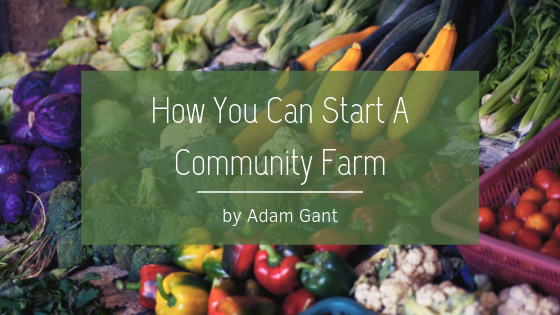When considering how you can benefit your community, donating money and goods may be the first idea to come to mind. However, there are other ways you can provide valuable resources and opportunities for those in your area. One such idea is starting a community farm. The benefits of a community farm are plentiful, especially in urban areas, and they are a great way for you to get involved with your neighbors and form lasting connections.
What Is A Community Farm?
Simply defined, a community farm is a shared plot of land that hosts produce, flowers, and other vegetation for anyone to use. These gardens are tended to by the community, meaning that anyone can plant seeds, water sprouts, and harvest fruits and vegetables. Often, community farms are started in order to provide healthy resources and cost-effective opportunities to individuals who might otherwise lack access to such things.
Some of the primary benefits of a community farm entail access to fresh produce, urban beautification, cleaner air, diversified relations, and a stronger, more tightly-knit community. Though starting and maintaining a community garden can certainly require a lot of hard work, the positive effects are worth the labor.
Getting Started
One of the most important steps to take prior to starting a community farm entails actually communicating with members of your community and gauging their interest. If you are the only individual who is passionate about the initiative and shows interest in tending to the farm, you might want to consider alternative means of serving your community. However, even connecting with your neighbors is a great start; showing them that you have an idea that would benefit everyone could be enough to convince them to support your initiative.
Identify Resources
From available, fertile land to gardening equipment, ensuring you have what is necessary for the urban farm is essential. You should devote some time to researching the organizations in your area such as gardening clubs or municipal planners who can support your idea and provide you with valuable resources and advice. Connecting with individuals in your community who have gardening or landscaping experience will also be beneficial.
Establish Guidelines
Budgeting finances and determining management duties is often a necessary aspect of beginning a community farm. Designating how you will receive funding for your farm—through fundraising or membership dues, for instance—and who will be responsible for tending to the garden throughout each week can help eliminate some stress and uncertainty. Putting these rules in writing is an important step, as well, to ensure everyone involved has a sense of responsibility for the project.
Once you have taken the necessary steps for preparation, you can begin. The benefits of a community farm are immense, and starting one can improve your community by adding to available resources, providing green space, and encouraging community connection and engagement.
